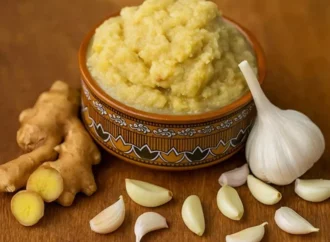Report
India’s food processing industry is quickly moving toward a smarter and more sustainable future. A new report by ASSOCHAM and PwC shows how technology and innovation are helping the country become a global leader in food processing. The report, launched at ASSOCHAM’s Food Tech conference, highlights how new tools like AI and IoT, blockchain, robotics, and automation are changing how we process, store, and transport food. These tools help improve food safety, quality control, speed, and transparency in the supply chain.
India Can Reduce Big Losses After Harvest
The report says India can use these technologies to fix major problems like post-harvest food loss, which costs the country ₹1.53 trillion every year. With the global food robotics market expected to reach $6.08 billion by 2032, India has a great chance to benefit. Government programmes like the Pradhan Mantri Kisan Sampada Yojana (PMKSY) and the PM Formalisation of Micro Food Processing Enterprises (PMFME) are helping small food businesses grow, reduce waste, and modernise the sector.
Challenges Still Remain
Despite progress, the industry still struggles with weak supply chains, limited processing units, environmental issues, and a lack of skilled workers. The report highlights that the world loses $936 billion to food waste and $110 billion to foodborne diseases each year. It calls for stronger safety rules and digital systems to reduce waste and protect health. Indian consumers are now choosing foods that come in eco-friendly packaging, include plant-based proteins, and have clean labels (fewer additives). These trends are shaping how the industry grows.
Everyone Needs to Work Together
“India’s growth as a self-reliant nation depends on how well we transform our food processing system,” said Manish Singhal, Secretary General of ASSOCHAM. “New food technologies need teamwork from government, businesses, startups, and scientists,” added Shashi Kant Singh, Partner, PwC India. The report says this collaboration — backed by good infrastructure and strong policies — will unlock India’s full food potential.
Source: IANS Live
 Food Manifest
Food Manifest 

















